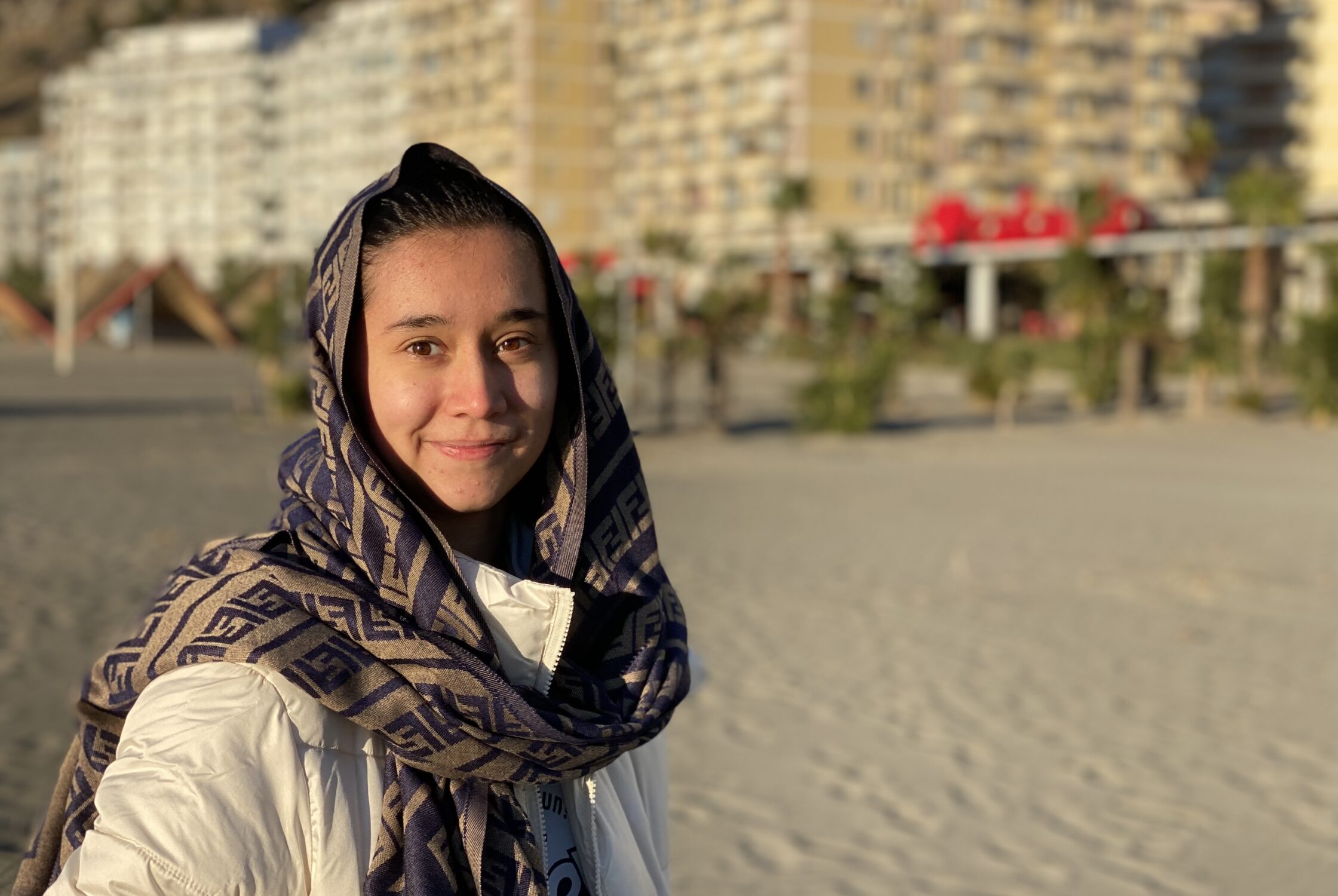Meet Marwa Dashti, Afghan Refugee and Aspiring Journalist

Marwa Dashti is a young Afghan woman from Panjshir who was forced to flee her country 10 days after the Taliban took control of Kabul in August 2021. She lived in Albania before being resettled to Canada in early 2022, where she is currently finishing her high school education.
Refugees International first met Marwa on a research trip to Albania in 2021, where Refugees International’s senior advocate for women and girls Devon Cone talked to her about her experience and perspective as a refugee. For International Women’s Day, we caught up with Marwa to see how she is doing and hear her thoughts about what it means to be displaced, the situation inside Afghanistan, and her aspirations for the future:
Q: How long were you in Albania and when did you arrive to Canada?
I stayed in Albania for nearly 8 months, before coming to Canada on March 22nd, 2022.
Q: How are you doing and how are you and your family liking being in Canada? Are you settling in OK?
Thankfully we are settling in quite well, and we like it here in Canada. But at the same time, Afghanistan is my home. That’s where I grew up and that’s where I spent most of my life. So, although I like Canada, it’s never going to be my home. I don’t believe one person can have two homes, and I already have mine.
Q: What have been the most challenging aspects of being resettled and what have been the most positive parts?
The most challenging aspects have definitely been settling into a new culture while trying to stay true to our own culture. I would say the positive parts have been the change in education. For some reason I find the education system here much easier than in Afghanistan. And thankfully I’ve been doing quite well in school, at least better than I thought I would.
Q: What have you heard from your friends back in Afghanistan? What do you think are the biggest problems for women and girls in Afghanistan now?
The past few months have been exceptionally hard on my friends who are still in Afghanistan. The complete ban on secondary and post-secondary education for girls, is every Afghan girl’s nightmare. And it has suddenly become their reality in the span of a year and a half. Unfortunately, with the ban on women traveling alone, my friends have lost all hopes of getting a scholarship abroad as well. Because even if they get a scholarship and they are given student visas, they can’t leave Afghanistan unaccompanied, and no country is willing to give their family members visas.
Q: What do you think needs to happen to improve the situation for women and girls in Afghanistan?
First and foremost, the Taliban should never be recognized by any country. Unfortunately, we have witnessed some countries trying to recognize the Taliban’s illegitimate government. It is only thanks to the strong Afghan men and women fighting inside and outside Afghanistan for their freedoms that these countries have been prevented from formally recognizing the Taliban.
Second, the Taliban have proven very well that they have in fact not changed as they pretend they have. They are still more than willing to marry children as young as seven, or forcibly marry multiple women in the span of a week, or rape women and torture and kill anyone who stands against them. They have proven that they will continue to commit horrific human rights abuses. The world needs to understand that you can’t negotiate with them. So, we should not try to make people believe that the only way to fix the situation in Afghanistan is through negotiation and compromise with the Taliban. If the world really wants to help Afghanistan, they should try and help those who are and have been actively fighting against the Taliban since 2021.
Q: What do you think we need to do as women to ensure that we have equality and that women and girls have greater opportunities, either in Afghanistan, or Canada, or the United States or anywhere in the world?
Unfortunately, even in the twenty-first century, women are still oppressed, and it’s human nature to be scared of speaking up if you are oppressed. So, we as women who have voices should try and show all the oppressed women in the world their strengths and help them gain their voices.
Q: What makes you hopeful?
All the strong Afghan men and women who have been fighting with whatever they have since 2021 for their freedom. All the girls who have created their own secret little networks and are trying to help their Afghan sisters get the education they deserve. All the boys who are refusing to get an education unless the women in their country are allowed to get the same education as well. And all the people outside of Afghanistan who haven’t forgotten the pain and suffering of the Afghan people like the rest of the world, and who are still trying to bring more awareness to those who are ignorant.
Q: What do you want to do in the future?
Like my father, I want to be a journalist. I want to change the false narrative the Western media is trying to force on people and bring the true and authentic stories of what being an Afghan means to the world.
The views expressed in this piece are the authors’ own.